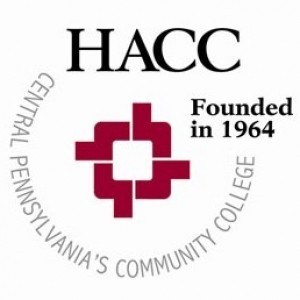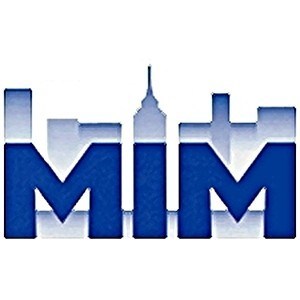Photos of university
The Music Audio and Recording Technology program at Harrisburg Area Community College is designed to provide students with comprehensive skills and hands-on experience in the field of audio production, recording, and sound engineering. This innovative program prepares aspiring audio professionals to excel in various industries, including music recording, live sound, broadcasting, film, and multimedia production. Students will gain a solid foundation in the principles of acoustics, audio signal flow, and digital audio workstation (DAW) software, enabling them to operate and troubleshoot complex audio equipment effectively.
Throughout the program, students will learn how to record, edit, mix, and master audio tracks, as well as develop a keen understanding of the creative and technical aspects of sound design. The curriculum emphasizes practical learning through lab work, projects, and internships that simulate real-world production environments. Students will also explore topics such as studio recording techniques, audio post-production, music production, and sound for visual media.
Harrisburg Area Community College's state-of-the-art facilities provide students with access to professional-grade recording studios, mixing consoles, microphones, and editing software. The program is mentored by experienced instructors who bring industry insights and connections, preparing graduates for successful careers in a competitive job market. Upon completion, students will have a diverse portfolio of work to showcase their abilities and a strong understanding of industry standards and practices. Whether aiming to work as a recording engineer, sound technician, music producer, or audio post-production specialist, students will be equipped with the technical expertise and creative skills necessary to succeed in the dynamic world of audio technology.
Major Requirements
MUSB 111 Music Business and the Internet 3
MUSB 226 MIDI and Computer Applications 3
MUSB 227 Studio and Performance Production Operations 4
MUSB 228 Audio Technology 4
*Program Specific Electives 6
This curriculum is designed to prepare students to:
Cite examples of the expanding role the Internet and World Wide Web has in all aspects of the music business
Explain how the Internet/World Wide Web is a dynamic source of information in all areas of the music industry
Demonstrate the basics of MIDI hardware and software and their respective applications to recording, editing, arranging, mixing, and printing of music
Create new music in a digital audio format using audio loop technology and/or rendering MIDI files
Create audio recordings in compliance with current industry standards
Configure equipment for portable and installed sound systems, recording devices, and audio editing computers
Differentiate various output standards including streaming, static web, digital media formats, audio for video, audio aspects of film, and many non-music media
Interpret metering signals, digital over indications, and loudness perception to identify possible flaws in processed audio and attempt to avoid these flaws
Apply for a Full-Ride Scholarship
Are you a future student and ready to apply to HACC?
By applying to HACC, you have the opportunity to apply for a full-ride scholarship! HACC will fund two years of your education – enough to complete your associate degree.
Thanks to the support of the HACC Foundation, the College is able to offer FREE money to support future students, like you, in reaching your educational goals. Six full-ride scholarships are available – one from each of the five campuses and one through HACC’s Virtual Learning Program.
Please note that current students are not eligible for the full-ride scholarships. However, there are more than 250 scholarships available for current students.
What should you know about the full-ride scholarship?
The scholarship covers tuition, books and fees for a full academic year.
The scholarship will automatically renew each term for up to six consecutive terms if you maintain your eligibility.
Once you apply to the College and receive a HACC ID and email address, you may apply for the full-ride scholarship. You do not have to register for classes before applying for the scholarship.
Are you eligible?
To be eligible, you must:
Apply to HACC
Take 12-15 credits each term for no more than six consecutive terms (two years)
Live in Adams, Cumberland, Dauphin, Franklin, Juniata, Lancaster, Lebanon, Perry, Schuylkill or York county
Have a minimum cumulative high school GPA of 3.0
Provide a 480 SAT reading score, 21 ACT or comparable scores on the College’s placement test
Maintain a GPA of 3.0 while enrolled at HACC
Participate in at least two HACC student organizations
The Music Audio and Recording Technology program at Harrisburg Area Community College offers students a comprehensive education in the skills and knowledge necessary for a successful career in the recording industry. The program is designed to provide practical hands-on experience with modern audio recording equipment, software, and techniques. Students will learn about sound engineering, audio production, mixing and mastering, live sound reinforcement, and music technology. The curriculum emphasizes both theoretical understanding and practical application, preparing graduates for employment in recording studios, radio and television broadcasting, live sound companies, and other media-related fields. The program includes coursework in acoustics, audio editing, digital audio workstations (DAWs), microphone techniques, signal flow, and audio post-production. Students also have opportunities to collaborate on real-world projects, work with industry-standard equipment, and develop a professional portfolio. The college often partners with local media companies and recording studios to provide internships and practical training experiences. Graduates of the program will be equipped with the technical skills and industry knowledge needed for a variety of roles, such as audio technician, sound engineer, recording artist, or studio manager. The program aims to foster creativity, technical proficiency, and a deep understanding of the audio production process, making students well-prepared for the evolving landscape of music and sound recording technology.



